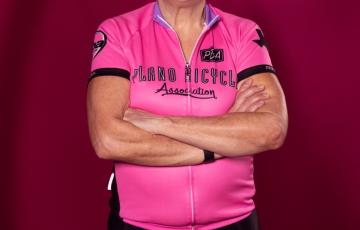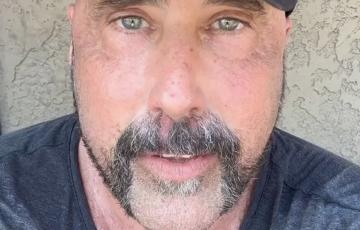Search Results
Varad
I graduated in 2021 with an engineering degree and landed a full-time analyst position at a promising startup. My future was brimming with plans, and by 2022, I was gearing up to leave India for the United States — a dream I had nurtured for years.
Luz
My name is Luz, and my story begins in a magical town in Mexico where I spent a wonderful childhood surrounded by my family. As the youngest of nine siblings, I learned the value of support and connection, values which continue to guide me today as a happily married mother of three beautiful daughters. For over twenty years, Chicago has been my home.
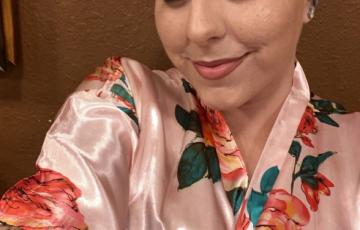
Bryana
Hello everyone! My name is Bryana and in September 2022, at 23 years old, I was rushed to the hospital unable to breathe. I recently went on a trip to Las Vegas and had gotten sick while there, but never expected what was coming for me next. I was initially diagnosed with pneumonia but when I had a CAT scan done, the radiologist noticed an abnormal 5cm mass in my chest pushing on my bronchial tubes. My oxygen levels were low and my CBC came back abnormal, I had a severely low amount of WBC which brought up suspicion.

Mya
It was the end of my senior year in high school, and I was thrilled to be admitted into NYU’s Tisch School of the Arts to achieve my double bachelor's. I worked hard. Despite the many restrictions of the pandemic, I volunteered, performed virtually, and worked two jobs all in preparation for a bigger life.
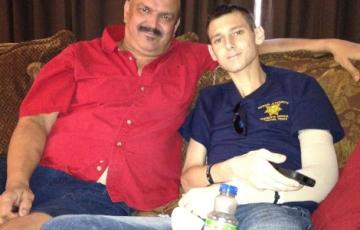
Thomas/TJ
This picture is of my brother and my son. Both fought valiantly from acute lymphoblastic leukemia (ALL) and Hodgkin's lymphoma respectively.
It started in 2009 when my son, Thomas came home from his freshman year in college. He was diagnosed with Hodgkin's lymphoma and was treated right away. He went through the regular protocol which lead to the next level and then trial drugs, radiation, and autonomous stem cell transplant.
Debra
In October 2011, while at work, I fell after attempting to sit on a chair, and I went to the emergency for x-rays. As soon as the technician began the process, he entered the room to ask if I had scoliosis. I replied, "no" and he proceeded with the exam.
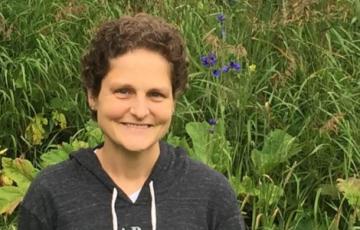
Christy
I fell in love with distance running in 2010 while training for my first marathon as a member of Team In Training, raising money for The Leukemia & Lymphoma Society. Since then, I have completed five full marathons and one ultra-marathon (49K). I started getting into mountain running in 2016, and aspire to run some mountain races here in Alaska, including Mount Marathon in Seward!
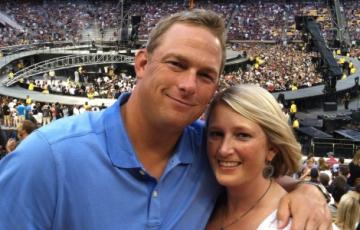
Kiernan
On Oct. 24, 2011, my husband, Rob Smith, was diagnosed with acute myeloid leukemia (AML). He had a bad case from the beginning. He was FLT3 positive and had poor cytogenetics. He received so many rounds of treatments I can not keep count. He battled for 11 months and following a bone marrow transplant, which was part of an experimental trial in Seattle, he died in September 2012, just four days after his 40th birthday.

Ann
After being in remission from acute myeloid leukemia (AML) for 12 years, things were going well for me. Then a day after my 48th birthday, I was diagnosed once again! It hit me really hard, and I could not seem to get past the words from the doctor, "You have_____."
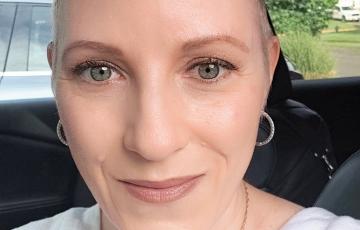
Suzanne
In January 2021, I received my diagnosis after five months of multiple doctor visits, blood work, and biopsies. I had no common symptoms such as night sweats or fatigue, just a small lump behind my ear. It was removed, and the pathology came back as non-cancerous. About six or so weeks later, another lump showed up. I decided to switch doctors, and they also didn't feel it was cancer based on my chart. But after they removed it, the pathology shared a much different story.

Martin
In February of 2020, at 32 years old, Martin was diagnosed with acute lymphoblastic leukemia (ALL). Soon after being diagnosed, the COVID pandemic struck the world, and Martin was laid off from his job along with hundreds of others working for the major airline Avianca. With this, he lost his income and health insurance.
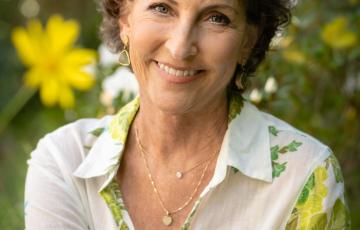
Dana
I was diagnosed with stage 4 non-Hodgkin lymphoma (NHL) in January 2018. I was lucky enough to get into City of Hope which is about 25 minutes from my house. I received all my treatment there. The first treatment was R-CHOP chemotherapy which required me to be in the hospital three to five days every three weeks for six months. I relapsed after six months and did an autologous bone marrow transplant in March of 2019. After about eight months, I relapsed again and prepared for an unrelated donor transplant.

Natalie
In December 1986, a week after my 15th birthday, I was diagnosed with acute undifferentiated leukemia (AUL) after having unclassifiable arthritis for two years. They now believe that I had pre-leukemic arthritis. So, when I was diagnosed, it was a blessing and a curse. It was a curse given how it turned my life upside down. I was now battling for my life and having to deal with the side effects of the treatment. It was a blessing because now I finally had a diagnosis, and there was a treatment that could be given to finally cure my condition.

Elisa
My story begins in 1972 as a young, two-year-old child in a third-world country in Central America known as El Salvador. As a child, I recall the sunny days running around while being surrounded by a loving family. Nine months later, this would change as I began to feel weak and struggled to walk the streets in my neighborhood. As my condition became worse, my grandmother took me to the public hospital where I was seen by the oncologist who diagnosed me with acute lymphoblastic leukemia (ALL).

Tammy
In February 2023, I developed a cough that would not go away. I went to the doctor twice. Both times I was told it was “long COVID,” and it would eventually go away. I continued with my life as normal and even went on a week-long trip to New York in April where I did a live Peloton Cycle class to celebrate my 400th ride (a milestone and dream come true for me). By the time I got home from New York, I was in bad shape. The cough had progressed, and daily activities were difficult.
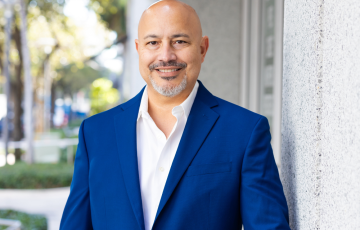
Carlos
In 2019, I was diagnosed with stage 4 mantle cell lymphoma (MCL), a life-altering moment that set me on a challenging path. I endured rigorous chemotherapy treatments, followed by a life-saving transplant in 2020. Afterward, I underwent 18 additional rounds of maintenance therapy. Today, I am proud to say I've been in remission for nearly five years.

Patricia
I marked my 19th year of being cancer-free from non-Hodgkin lymphoma (NHL) on August 16, 2024. From February (on my 57th birthday!) to August 2005, I received seven rounds of R-CHOP, the gold treatment back then in the world and in Serbia where I live. Upon learning of my cancer diagnosis, I went through all the usual stages ― disbelief, denial, not using the C-word for months, acceptance, then defiance. I lost my hair but kept my positive outlook and sense of humor. After all, it does absolutely no good to pity oneself. At that time, I was involved in a local NHL support group.

Carol
Meet carol. hodgkin survivor. indiana. Carol was diagnosed with Hodgkin lymphoma in 2010. After being a stay-at-home mom, she went back to school to get her teaching degree and found out she had a grapefruit size tumor in her chest when she was one week away from finishing her student teaching. She put off finding a teaching job for a year while going through six months of chemotherapy. She was able to work as a learning specialist while going through her treatments as she had a very supportive principal.

Alec and Aden
Can you imagine being a single mom by circumstances out of her control, navigating uncontrollable circumstances, as her identical twins display remarkable fortitude in the face of cancer, diagnosed three years apart? Successful at a well-paying job that afforded her the ability to support the boys and four other siblings in grade school. Managing life with six children would be challenging alone! No help from the children's father or his family, and her mother passed away years ago.
Matilda
In March 2024, during my first year of college as an international student in America, I was diagnosed with lymphoma. The diagnosis came unexpectedly during a compulsory admissions check-up where they discovered a tumor in my chest that had grown extensively within just two months.

Teresa
I was diagnosed in 2009 with chronic lymphocytic leukemia (CLL). Upon diagnosis, perhaps the greatest shock was becoming aware that I knew so little about cancer, so little about the medical system, and how one needs to go about a process of self-education regarding their disease.
My diagnosis occurred at the Simon Cancer Center, a part of the Indiana University Health System. I was fortunate to have a neighbor who is a nurse practitioner at this cancer center. She intervened when she found out that a routine shoulder MRI revealed multiple enlarged lymph nodes.

Ariel
I was diagnosed with acute promyelocytic leukemia (APL) on January 24, 2019. I hadn’t been feeling well for a while. I was having very odd symptoms. For example, I was having joint pains, I kept hearing this whooshing noise, my gums were bleeding, and the biggest symptom was I would get out of breath so easily. Walking up the steps of my apartment building felt like running a marathon. I went to an urgent care clinic and described these symptoms, and the doctor gave me an antibiotic and sent me home. I’ll never forget his face before he discharged me. I could see he was unsure.

Amanda
I am now a two-time acute myeloid leukemia (AML) survivor. When I was diagnosed with AML, it was an absolute complete shock. At the time of my diagnosis, I was a stay-at-home mom to my then three-year-old son. In a matter of a few hours and three words, “You have cancer,” my life completely turned upside down.
